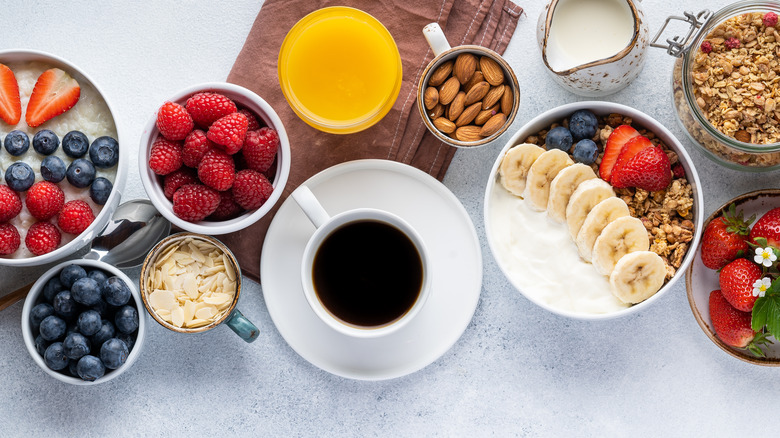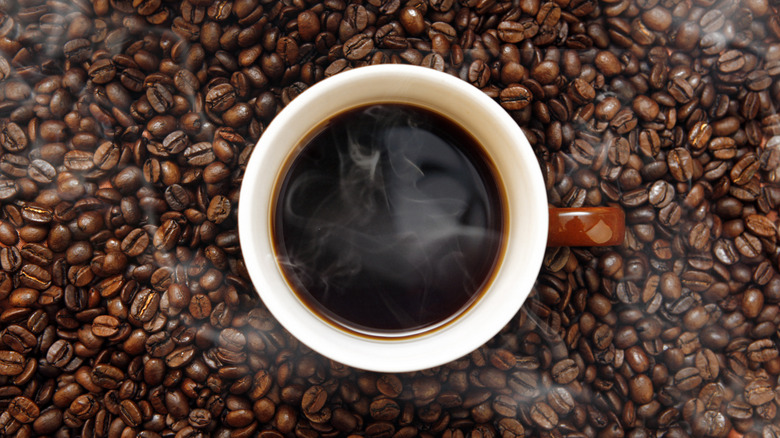How Coffee Became America's Favorite Breakfast Drink
There are few things in life more invigorating or satisfying than taking that very first sip of coffee in the morning. Whether you enjoy your cup of joe with a dash of cream and sugar, black and bitter, piping hot, or iced, the iconic beverage is beloved by people all around the world. According to data from the National Coffee Association, approximately two-thirds of Americans consume coffee on a daily basis.
Coffee has become an integral part of American culture, with roasters and cafés sprinkled on street corners across the country. Big-name chains like Starbucks serve millions of coffee connoisseurs every day, per Starbucks Investor Relations. Coffee dates, meetings, and personal rituals bring many of us a sense of comfort and conviviality. The bittersweet libation even offers a slew of health perks, such as increased odds of living longer and a decreased risk of developing Parkinson's disease and colon cancer, according to Johns Hopkins Medicine.
People's caffeine cravings don't seem to be decelerating any time soon. The question is, when and why did people become so enamored with coffee, particularly at breakfast time? As it turns out, coffee became as popular as it is today surprisingly recently.
Drinking coffee at breakfast is a widely accepted American custom
Coffee is undoubtedly considered a commodity. Some people simply can't get through their day without a mug or two (or more), they're so devoted to it. However, just over a century ago, the mere thought of glugging back coffee to start the morning off right didn't cross most American's minds.
Coffee is believed to have been first enjoyed by ancient Ethiopeans and Yemenis, who would drink it to awaken their senses, according to History. In that regard, not much has changed. The practice of sipping coffee made a big splash in the aftermath of the Boston Tea Party, when coffee overrode tea as the cozy refreshment of choice, Coffee or Die shares. Fast-forward nearly 200 years, America became the top buyer of coffee in the world in the 1920s, Public Goods explains. Unfortunately, during World War II, imported coffee was heavily regulated by the government, essentially cutting civilian consumption in half, as coffee was reserved for soldiers overseas. Then, when the '60s rolled around, Coffee or Die Magazine explains that coffee aficionados moved beyond relying on instant coffee and began investing in freshly brewed java thanks to innovative chains like Peet's Coffee and Starbucks.
As far as the phenomenon of drinking coffee at breakfast goes, the caffeinated miracle has proven time and time again to help kickstart our bodies' and brains' energy levels whenever we need it the most, especially upon awakening.

